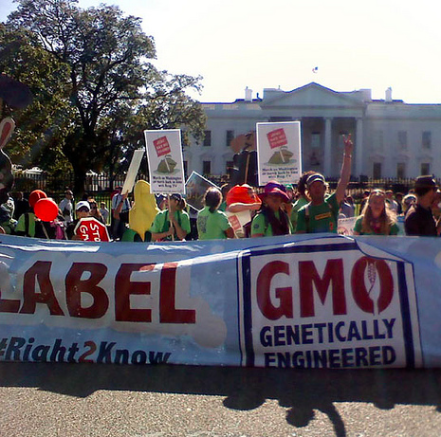-
Tips for becoming a good boxer - November 6, 2020
-
7 expert tips for making your hens night a memorable one - November 6, 2020
-
5 reasons to host your Christmas party on a cruise boat - November 6, 2020
-
What to do when you’re charged with a crime - November 6, 2020
-
Should you get one or multiple dogs? Here’s all you need to know - November 3, 2020
-
A Guide: How to Build Your Very Own Magic Mirror - February 14, 2019
-
Our Top Inspirational Baseball Stars - November 24, 2018
-
Five Tech Tools That Will Help You Turn Your Blog into a Business - November 24, 2018
-
How to Indulge on Vacation without Expanding Your Waist - November 9, 2018
-
5 Strategies for Businesses to Appeal to Today’s Increasingly Mobile-Crazed Customers - November 9, 2018
IL Watchdog Praising Senate Block on DARK Act
The Senate’s procedural vote blocking the legislation leaves intact a Vermont law that is to require labeling beginning July 1. The cloture motion failed 48-49.
Advertisement
U.S. Sen. Pat Roberts, R-Kan., is pushing a measure that would prevent states like Vermont from enacting their own laws and would instead create voluntary labels for companies that want to use them.
Later this year, barring some legislative maneuvering, Vermont will become the first US state to require mandatory labeling of products that contain genetically-modified ingredients (GMOs). Had the bill passed as a federal law, it would have superseded the labeling laws of states.
Major food, farm and biotech seed companies spent more than $100 million in the United States previous year to battle labeling efforts, according to a lobbying disclosure analysis from the Environmental Working Group, which opposes the Senate measure.
The last thing the nation needs is a patchwork quilt of 50 different state regulations that would burden the food industry with separate labeling requirements for products in each state.
It seems that a vast majority of senators agree that action needs to be taken on GMO labeling. “I look forward to considering alternative proposals that empower consumers”. The so-called “Safe and Accurate Food Labeling Act”, more aptly known as the “Deny Americans the Right to Know (DARK) Act”, should raise big alarms for Senators Casey and Toomey. “Consumers have a right to know what they are eating”, Jean Halloran, director of food policy initiatives for Consumers Union, said in a statement. “When I hear the arguments being made for taking away consumers’ rights, for taking away consumers’ ability to know what’s in their food, the lines of argument they come up with are laughable”.
Vermont Act 120 is set to go into effect on July 1st.
“A solution should respect consumers’ right to know what’s in their food while ensuring a GMO-labeling standard is fairly applied across the country and does not harm Colorado farmers”.
“Voting no today means telling your constituents next week that you are raising their grocery bill by over $1,000”.
“I remain at the ready to work on a solution“, Roberts said. “It also is an important victory for democracy over the attempt of corporate interests to keep Americans in the dark about the foods they buy and feed their families”.
Advocates of voluntary labeling say GMO-modified food has been proven to be safe.
Advertisement
A last-minute amendment to the bill would call on manufacturers to provide toll-free numbers, websites, QR codes or social media symbols on labels to inform consumers whether genetically engineered ingredients are present in the product. “Today’s vote makes it clear that meaningful, mandatory GMO labeling is the only option if consumers are to get the information they want and deserve”.





























